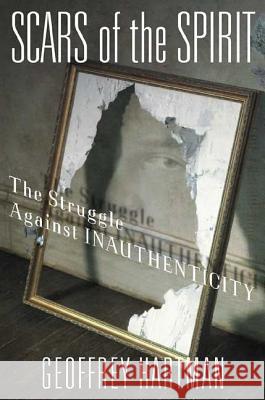Scars of the Spirit: The Struggle Against Inauthenticity » książka
Scars of the Spirit: The Struggle Against Inauthenticity
ISBN-13: 9781403965585 / Angielski / Miękka / 2004 / 272 str.
In this fascinating collection of essays, noted cultural critic Geoffrey Hartman raises the essential question of where we can find the real or authentic in today's world, and how this affects the way we can understand our human predicament. Hartman explores such issues as the fantasy of total and perfect information available on the Internet, the biographical excesses of tell-all daytime talk shows, and how we can understand what is "true" in biographical and testimonial writing. And, what, he asks, is the ethical point of all this personal testimony? What has it really taught us? Underlying the entire book is a question of how the Holocaust has shaped the possibilities for truth and for the writing of an authentic life story in today's world, and how we can approach the world in a meaningful way. Hartman produces a meditation on how an appreciation of the aesthetic qualities of art and writing may help us to answer these questions of meaning.
In this fascinating collection of essays, noted cultural critic Geoffrey Hartman raises the essential question of where we can find the real or authentic in todays world, and how this affects the way we can understand our human predicament. Hartman explores such issues as the fantasy of total and perfect information available on the Internet, the biographical excesses of tell-all daytime talk shows, and how we can understand what is "true" in biographical and testimonial writing. And, what, he asks, is the ethical point of all this personal testimony? What has it really taught us? Underlying the entire book is a question of how the Holocaust has shaped the possibilities for truth and for the writing of an authentic life story in todays world, and how we can approach the world in a meaningful way. Hartman produces a meditation on how an appreciation of the aesthetic qualities of art and writing may help us to answer these questions of meaning.











